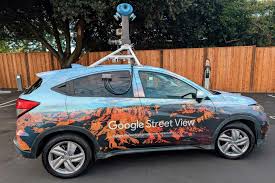Artificial intelligence is leading Google Maps down a new path.
The change, which was revealed Thursday, would allow the digital maps service, which Google created almost 20 years ago as part of its efforts to break new ground, to incorporate more of the ground-breaking AI technology that the internet giant has already been integrating into its dominating search engine.
The fact that Google Maps recently crossed the 2 billion monthly user mark for the first time shows how reliant people have grown on the service’s instructions for both daily commutes and travels.
Now that Google’s AI-powered Gemini technology has been released, maps are being configured to serve as both navigational and entertainment recommendations.
Starting this week, users in the United States alone will be able to talk to Google Maps to get advice on what to do around particular locations in a city or neighborhood.
They will also receive listings of local eateries, pubs, and other attractions along with evaluations that have been gathered over the years.
Additionally, the new capabilities will give users walking directions to check after getting out of their car and more specific information about parking possibilities close to a specified destination.
During a preview of the features on Wednesday in Palo Alto, California, Google mapping general manager Miriam Daniel told reporters,
“We are entering a new era of maps.” “We are changing the way you travel and discover the world.”
By adding more detailed images, Google Maps is also attempting to address issues by making it simpler to determine which lane of the road one should be in far in advance of having to make a turn.
In yet another spin on artificial intelligence, Google Maps will let outside developers use the language models that underpin its Gemini technology to make inquiries about certain locations, such restaurants or apartments, and receive prompt responses.
Google claims that this new function has completed a fact-checking process known as “grounding,” and it will first go through a testing phase.
Google’s Waze maps, which only provide real-time driving instructions, will employ artificial intelligence (AI) to provide its 180 million monthly users with a conversational means of alerting them to road hazards and other issues that can impact travel times.
Laptops 1000Google’s choice to integrate AI into a service that so many people use to get from one place to another shows how confident the company is in its ability to stop its Gemini technology from giving customers inaccurate or misleading information, or “hallucinations.”
In some of the summaries that started to circulate in May, Google’s AI has already been observed experiencing hallucinations.
These include suggestions to apply glue to pizza and claims that James Madison, the fourth president of the United States, attended the University of Wisconsin, which is located in a place bearing his name.

















